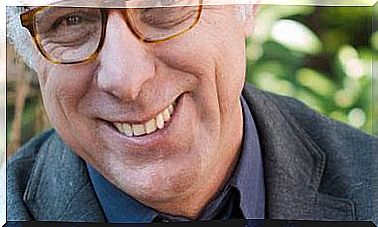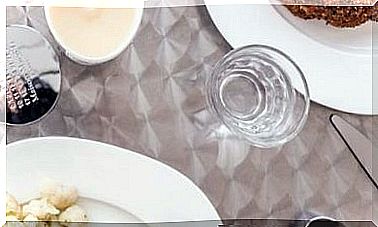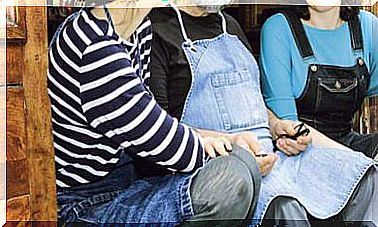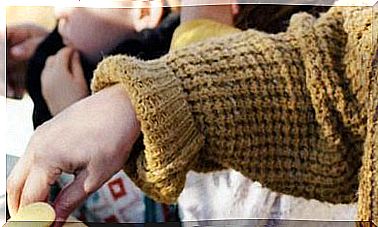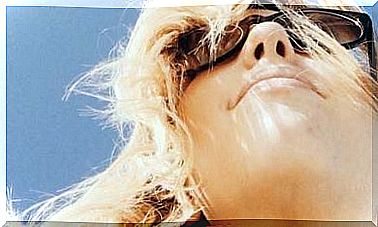The Dangers Of Triclosan (and How To Avoid It)
Triclosan is an antimicrobial that is used in hygiene products and cosmetics. Different studies and reports suggest that it has negative effects but its use is not prohibited: it is only limited to small doses. However, you can totally avoid it for added security.

Triclosan was first registered as an antimicrobial agent in the United States in 1969. It was initially only used in a medical context. Since 1972 it has been marketed as a hospital disinfectant, but in recent times it has been gaining ground in the consumer products market.
This substance is one of a series of organohalogen compounds that are used as preservatives and as bacteria killers. It is used, for example, to make cosmetic products last longer or as a disinfecting agent in cleaning products. It is even used as an ingredient in toothpastes.
However, there is a good number of studies that relate it to different negative effects on health, such as altering the endocrine system, promoting the appearance of resistant bacteria or intestinal cancer in laboratory animals. So far there are no conclusive studies that have led to ban its use and only limits have been established on the doses that can be used.
Where can you find triclosan
Suspicions about triclosan have led companies like Eroski to decide to remove it from their products, but it continues to be used in small amounts in many cosmetics, body soaps and gels, toothpastes, oral rinses, household cleaners, dishwashers and textile detergents, and therefore , it can become our daily companion.
Above all, it is a common ingredient in kitchen and bathroom detergents, yet it has not been proven to be more effective than soap and water in killing bacteria.
The dangers of triclosan
Almost as great as the effects this substance promises are the dangers it brings. Triclosan has been shown in laboratory experiments to cause allergic reactions. Suspicion of causing cancer or affecting liver function also hangs over him .
There is also a strong suspicion that regular use of triclosan-containing products in everyday life may trigger resistance to antibiotics. If this occurs, triclosan may no longer be effective in the hospital setting, where it is most useful.
Both the German Federal Office for Risk Assessment (BfR) and the Scientific Committee for Consumer Safety of the European Commission warn against the use of Triclosan products in non-medical settings.
It has not yet been banned, but in Europe its presence in oral rinses has been limited to 0.2% and 0.3% in other products.
Effects on the environment
In addition to its health effects, triclosan can also be a problem for the environment.
A study carried out by the Catalan Institute for Water Research (ICRA, for its acronym in Catalan), warns that triclosan reaches rivers where it becomes a persistent pollutant that interferes with the life of ecosystems because the purification process of treatment plants cannot eliminate it.
Here’s how you can avoid triclosan
Triclosan is a prohibited substance by the main certifications of natural and organic cosmetics. In this type of cosmetic, essential oils replace this antibacterial chemical agent in toothpastes, deodorants or shower gels.
The BfR recommends doing household cleaning with cleaning products that do not contain triclosan. There is a large selection of this type of products based on natural raw materials.
Scientific references:
- US Food and Drug Administration. 5 Things to Know About Triclosan
- Sergio Sabater et al. Triclosan persistence through wastewater treatment plants and its potential toxic effects on river biofilms. Aquatic Toxicology.
- Mei-Fei Yueh and Robert H. Tukey. Triclosan: A Widespread Environmental Toxicant with Many Biological Effects. Annual review of pharmacology and toxicology.
- Guodong Zhang. A common antimicrobial additive increases colonic inflammation and colitis-associated colon tumorigenesis in mice. Science Translational Medicine.
